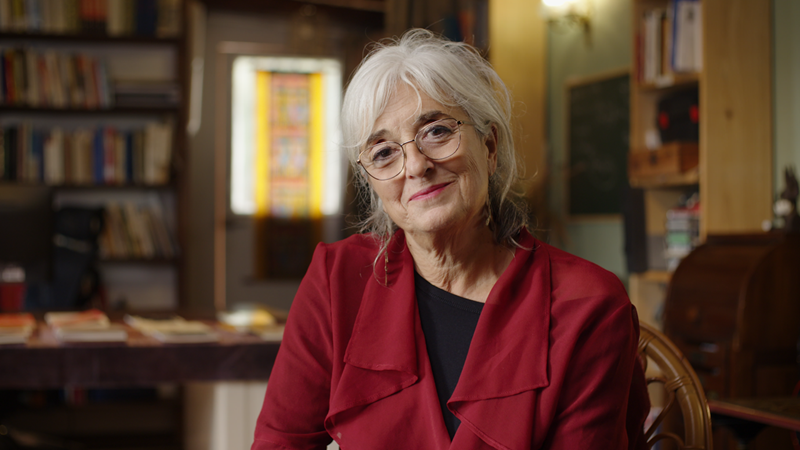Pilar Gonzalez Espana: Building cultural bridges through poetry and translation
In a picturesque village about an hour's drive from Madrid, People's Daily Online met with Pilar Gonzalez Espana at her home, surrounded by stunning views. Gonzalez is a professor of Chinese language and culture at the Autonomous University of Madrid who has dedicated her career to bridging the cultural divide between Spain and China. As a poet, playwright, and novelist, she has spent decades fostering understanding between the two cultures through her love of literature and translation. Over the years, she has translated the works of influential Chinese philosophers, writers and poets, including Zhuang Zi, Wang Wei, Lu Ji, Si Kongtu, and Li Qingzhao, bringing their voices to Spanish readers.

Pilar Gonzalez Espana (Photo/Patrick Shead-Simmonds)
Gonzalez's journey with Chinese culture began in the 1990s when she was invited to teach Spanish in China. "When I arrived, I fell in love with the culture," she recalled. "What captivated me most was the poetry—it resonates deeply, much like Spanish poetry does." The first poems she encountered were by Li Bai, whose words spoke to her feelings of nostalgia and homesickness. For Gonzalez, the beauty of Chinese poetry lies in its harmony: "The greatest poems achieve a perfect balance between thought, form, music, and spirit. Chinese poetry creates a layered tapestry of meanings, offering a different view of space and time that is profoundly attractive."
Among her favorite Chinese poets is Li Qingzhao, whose poem "Sheng Sheng Man" reflects on personal loss and sorrow. "At the time she wrote this poem, Li Qingzhao had endured great hardships—her homeland had been conquered, her treasured belongings lost, and, above all, she had lost her husband. The poem expresses a sorrow so vast that it almost cannot be contained within the word 'sadness'." Gonzalez has spent over a decade working on a novel about Li Qingzhao's life, inspired by her extensive study and translation of the poet's works. "I felt that in Spain if someone was going to write about her, it should be me, as I know her poetry so intimately."
While writing the novel, Gonzalez realized that her work was also a reflection on her own life and times. She felt a connection between Li Qingzhao's era, marked by cultural upheaval, and today's world, where the rapid advancement of technology and artificial intelligence brings its own set of challenges. "In Li Qingzhao's time, outside forces destroyed homes, art, and culture. Today, I see similar threats to our heritage. This realization gave me strength and a modern perspective as I wrote."
In Gonzalez's classes, she emphasizes the layered nature of Chinese literature and culture. "Chinese texts are rich tapestries of philosophy, history, sociology, and art. To truly understand a verse, you need to understand the cultural context—its history, philosophy, and way of life," she explained. She recalls a moment when her students were reading a poem by Wang Wei about the sunset. "I realized that many of them hadn't observed a sunset in such detail before. Through this poem, we celebrated the simple beauty of nature in class, experiencing it together as Wang Wei might have."
Gonzalez believes that love for both languages is essential to translation. "To build a true bridge between two cultures, you need a deep love for both languages and the worlds they represent," she said. "Only with this love can we create a real channel of communication between two peoples." For Gonzalez, translation is more than just converting words; it's a journey that enriches her life and brings two cultures closer together.
(Web editor: Hongyu, Wu Chengliang)